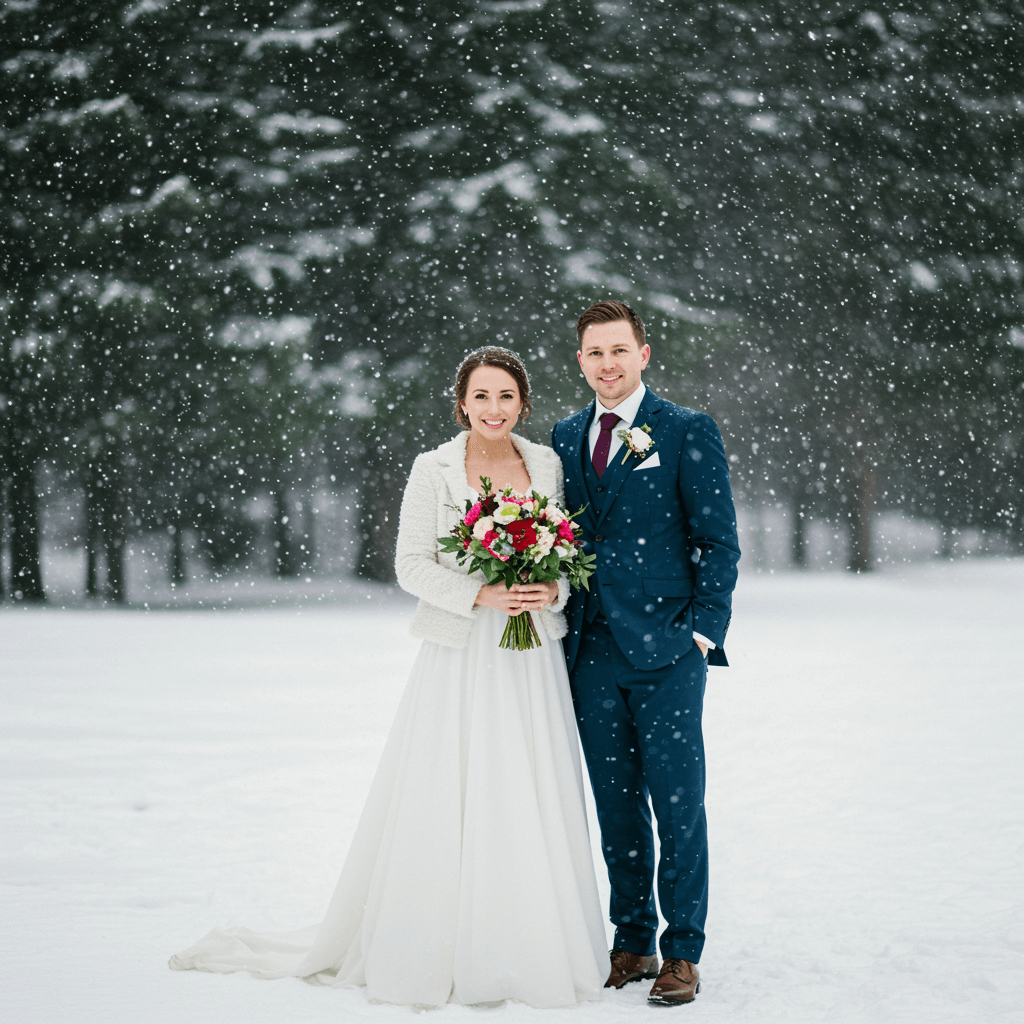Everyone should have the liberty to seek out the relationships and lifestyle that bring them happiness, as long as what they do is legal. We should not condemn people for their lawful choices. That said, legality doesn’t automatically make a behavior harmless—some actions can still cause real damage to others. I’m referring to the way vulnerable people can be coaxed or pressured into intimate entanglements that aren’t in their best interest and that they don’t truly want. If you grew up with abuse or emotional neglect, you know this pattern: the hunger for human contact can be so strong that you talk yourself into roles where you are neither respected nor genuinely loved, and then you get blamed for expecting anything beyond a hollow sexual encounter. Today’s letter comes from a woman who calls herself Annie. She writes: Hi Anna — I’m well into therapy and was recently diagnosed with PTSD. After finding you, I’m hoping for advice on staying resolute while letting go of an intense, short-lived situationship. Okay, I have my proverbial pencil ready to mark things to revisit on a second pass, but first let’s unpack Annie’s story. For roughly eight years I’ve fallen into a succession of painful situationships, one-sided friendships and outright limerence for people who continuously rejected me. For far too long I thought I was finally making progress in not abandoning friends and such. This newer friend group was mostly polyamorous—if anyone isn’t familiar with that term, it describes a relationship approach where people may have multiple partners so long as there is honesty about it; it’s often a subculture or social circle of people who prefer that style of relating. I was not polyamorous, and I believed I’d been clear about that. Over approximately two years I spent time with them and had mutual friends in that circle. At different moments I would respond the same way to advances or hints—“I’m not open to this, sorry”—and things would move on quickly. I could hold that boundary well because, for the most part, everyone seemed honest about what they wanted, and I thought that was progress. Then I met a new person in the group and we connected immediately: same cultural tastes, shared interests, easy conversation. One of my close friends in the group, a woman, encouraged me to ask him out, so I did—and he accepted. Before we even had our first date I asked point-blank whether he was poly, and he said yes. Being honest with myself, I told him then that I wasn’t interested in that arrangement. I cried about it, I was hurt, but I told myself I’d be fine and tried to keep my tone light yet truthful. It stung, but I wasn’t panicking; I expected my friend to remember my stance. What happened instead was the friend made excuses for him—saying he was “poly-flexible”—and I should have stopped there. But I liked him, so I decided to try anyway and see if we could make it work. Famous last words. A week or so later I discovered that the friend and the guy had hooked up in the past. When he told me he intended to continue that connection once he moved to her town, I completely unraveled. I was furious, not pretty, and not kind. I attacked my friend; he ran to her; they both cut me off—rightfully so, says Annie. I was mean and irritable; I fully relapsed, and I had to live with the consequences. Months later I tried to apologize because I lashed out and because I loved that friend dearly, but the damage was done and our friendship never healed. The guy, however, was willing to try again. In my loneliness and desperate need to prove I wasn’t a monster and could make amends, I agreed to reconnect. I had to push him to clarify whether we were dating, and about a month in we both felt hopeful and excited at the prospect of being together. Two months later we talked every weekend: he visited, we had lots of sex and fun, held hands, and even took a long car ride to my mother’s house. The weekend felt wonderful; all the stomach-churning doubts seemed to melt away. My anxiety whispered that maybe this guy truly wanted me too, that perhaps he was wary because of his own rough romantic history and the fallout from my earlier outburst. But then, before he left that Sunday, he dropped a line that gutted me: from the beginning you knew this wouldn’t be anything. I talked him into giving it a shot, because that was not what we had discussed; we’d had an honest heart-to-heart before he went home. We spoke as usual the following weekend and then had a major blowout when I pressed for exclusivity. He said he was only “40% there.” It was about four months in and I would have been willing to keep being patient after such a rocky start, but when he told me he wanted me to stay without being able to commit, something didn’t sit right. I realized I’d been censoring myself—avoiding saying the word relationship for a long time. After a few days of reflection, I ended it. It was too much. I had to focus on my master’s degree and I’d been using anxiety as an excuse to procrastinate, which was unfair to both of us. I stopped pushing and let him go. For more than a year I’ve battled the urge to unblock him and try to reconnect; resisting that temptation is a constant struggle. I’m dating again, but it feels perfunctory, and I can’t stop fantasizing about what might have happened if I’d stayed a bit longer. How do I hold firm to my decision? What coping tools am I missing that would give me confidence in my choices and stop me from constantly looking back? Annie. I can help. I’ll try to be fair to the man in question, but I get many letters from people who suffer because they try to cram themselves into a shape that fits a polyamorous person when that’s not what they actually want. They self-abandon to make it work, and you’re another person who did just that. Trauma has a way of making people contort themselves for anyone who might become love. Regardless of what someone says—or doesn’t say—about their intentions, trauma makes us see love where there is none and hear the words we most want to hear. That’s a common symptom of trauma; there’s no shame in it. The good news is you’re confronting it, and you’re living with the consequences of slipping into wishful thinking. You said that for eight years you’ve endured heart-wrenching situationships with people who rejected you, which signals a recurring trauma pattern: seeing love where none exists and struggling to perceive reality accurately. What that means for you, Annie, is you need a deliberate workaround and additional supports to make intentions explicit before you become emotionally and sexually attached. Some people can take a casual approach—wait and see—but for you that approach tends to result in emotional devastation. Even if you can tolerate persistent pain, staying in that state prevents you from moving toward reciprocated, healthy love that aligns with what you truly want. You can and likely will find that kind of relationship, but not if you keep abandoning yourself to make things fit whoever is in front of you. You mentioned spending about two years on the fringes of a polyamorous group; for someone with your history, that’s notable. Perhaps, on some level, you were trying to see if you could reshape yourself to fit their culture—convincing yourself that you wouldn’t expect exclusivity would make everything easier. That’s a recipe I don’t recommend. Be honest with yourself: wanting a monogamous relationship with someone who deeply wants you in return is valid and healthy. Don’t give that up to fit someone else’s mold. The culture among many polyamorous people often emphasizes open communication as the ideal, which sounds appealing in theory. But many people drawn into such circles lack boundaries, are lonely, wounded, and easily swayed. They struggle to hold onto their own desires and get manipulated. From what you describe, your friends behaved manipulatively—recommending this man without reminding him or you of your stance—so your anger was justified. You may feel guilty for how you acted when you blew up, but that doesn’t erase the manipulation you experienced. It’s hard to see that when trauma inclines you to self-blame: maybe I was too sensitive, maybe I should have censored myself, maybe I should have tolerated it. That is an archetypal trauma response, but it’s not healthy, and you don’t need those people in your life if they treated you that way. If you want clarity about someone’s intentions, all of that communication needs to happen before you have sex. People with attachment wounds are especially vulnerable: sexual intimacy can trigger deep-seated childhood attachment patterns after just one encounter, making it nearly impossible to keep boundaries or stay honest with yourself. Under that pressure you’ll say anything to keep someone from leaving, and what follows is often a depression or a loss of self, as you try to keep a relationship alive by tolerating intolerable things. That’s normal for trauma survivors, and it’s okay to want monogamy—you don’t need to be shamed for that. The way to draw a firm line is by refusing to date anyone who won’t clearly state they want exclusivity with you. Delay sexual intimacy until intentions are explicit; that’s the most effective method. I’ve developed a structured approach—a dating course—designed for people with childhood PTSD. It focuses on clearing the patterns that attract unavailable partners: the situationships, the people who aren’t truly available. The course helps you name what’s been happening, change those patterns, and build a deliberate way of dating so you can cultivate the relationship you actually want. Not everyone will fit what you need, and that’s okay—dating is about discovering whether someone is a suitable long-term match. That’s why going slow sexually is crucial. Plenty of people will wait if they’re genuinely interested; those who won’t aren’t a good match for you. You have an attachment wound, and you can’t afford to sleep with a hundred people just to find out how they feel. You must be more focused, kinder to yourself, and clearer about your intentions. People who genuinely like you will appreciate your openness about wanting to go slowly. If you keep vibing casually and self-censoring words like relationship, you’ll stay stuck. I hear you saying you “fully relapsed” when you lashed out. If that’s how you conceptualize it, fine, but the anger you felt was a response to being manipulated. Trauma makes situations feel confusing—someone manipulates you and you doubt your right to be angry—so you apologize and accommodate, which perpetuates the cycle. Don’t be that person who tolerates anything. You don’t have to. You’ve learned that you can’t assume someone will be monogamous unless they explicitly say so and demonstrate it over time. Being prone to manipulation also means you may encounter more manipulative people, which is why taking it slowly and having friends who can offer reality checks is important. I felt your pain when he said after an idyllic weekend that you “knew this wouldn’t be anything.” That line is devastating. You admitted you “talked him into trying things” and then stayed despite warnings; trauma often anchors you in that position. The good part is the wiser part of you knew you should leave—your anxiety was a signal, even if you’d been using it to procrastinate. Ending it to focus on your master’s program was a brave and practical choice. Now, more than a year on, you’re fighting the urge to unblock and reconnect. That’s typical of trauma: we tend to eroticize abandonment—replaying the heartbreak and turning it into an ache we can’t shake. New potential partners might be available, but they don’t carry the same charged allure. Resisting the pull to return to the one who hurt you is a continual battle, and it’s a destructive one if you keep losing. You’re doing the right thing by naming the struggle and seeking support—listeners in this community will relate and warn strongly against going back. Your life energy—your capacity to love, to build a family, to create a future—shouldn’t be wasted on someone who decided they didn’t want it. That inner voice urging you to reconnect is trauma talking; it has an emotional charge and can feel strangely magnetic, but it lies. You can avoid that false pull by staying truthful with yourself and with others. It’s easy to slip into the lie when you’re not honest or when you isolate and indulge in fantasies. You can’t control every intrusive thought, but you can practice self-discipline to redirect them toward healthier, more uplifting subjects. For some people that means gardening; for others it’s immersing themselves in a book series they love. Intentionally steer your mind toward something constructive. Because trauma complicates thought control, I teach daily practice techniques to help people move painful, stressful thoughts through their minds so they don’t dominate. Those techniques help shift processing downstream so calmer, inspired thoughts can emerge. I use these tools twice a day, and there’s a free introductory course available (details in the usual description area). Finally, I want to highlight what I call the signs of healing—small, profound indicators that change is really possible and that you can come to feel lovely inside after changing behaviors that repeat trauma. Attaching to unavailable people and fantasizing about those who hurt you are self-defeating patterns that retraumatize and keep you stuck. Focus on healing and take actions that support it. If you want a full description of what healing feels like, there’s a longer download in my book—and a free PDF called “Signs of Healing” you can download now. Keep going; it’s possible to find peace and a relationship that truly matches what you want.



 Don’t Let Manipulative “Poly” Friends Push You to Self-Abandon">
Don’t Let Manipulative “Poly” Friends Push You to Self-Abandon">

 Jak mluvit s lidmi, kterě se vám nelíbí">
Jak mluvit s lidmi, kterě se vám nelíbí">
 The Avoidant Owes You More Than an Exit (Brutally Honest) | Mel Robbins motivační">
The Avoidant Owes You More Than an Exit (Brutally Honest) | Mel Robbins motivační">







